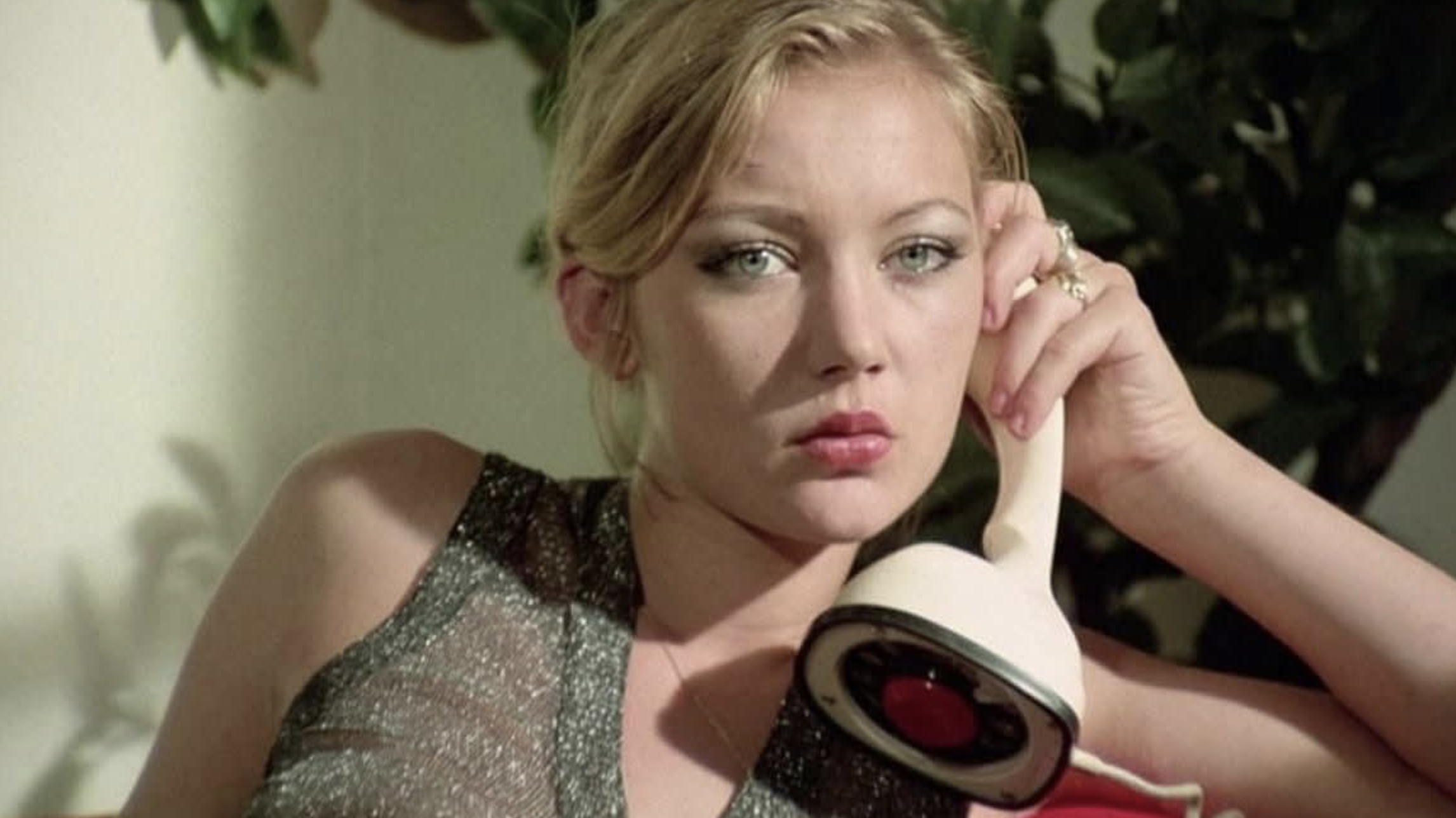There’s a moment early in Felicia’s Journey—Atom Egoyan’s 1999 psychological thriller where “psychological” means “nobody blinks” and “thriller” means “you might nod off”—when the titular Felicia, a naive Irish teenager, stares blankly at a British cityscape. In that moment, you can practically hear Egoyan whispering behind the camera: “Behold… alienation.” Unfortunately, all we behold is another slow, muted, suffocating stroll through the director’s favorite subject: emotionally stunted people trying to have a conversation without making eye contact.
Adapted from the novel by William Trevor, Felicia’s Journey should’ve been Egoyan’s Hitchcock moment—a chilling tale of predation and manipulation dressed in suburban blandness. Instead, it’s more like Psycho if Norman Bates were a jello-obsessed, microwave-loving introvert with the charisma of expired custard.
The plot—or rather, the foggy path where a plot might be hiding—follows Felicia (Elaine Cassidy), a soft-spoken and tragically unprepared teen who flees Ireland in search of her lover, Johnny, a man who seduced her, got her pregnant, and then vanished like a puff of budget mist. She arrives in Birmingham, alone and directionless, armed only with her thick accent and the tragic optimism of someone who’s clearly never watched a film directed by Atom Egoyan.
Enter Joseph Hilditch (Bob Hoskins), a pudgy, meticulous catering manager who wears too much beige and smiles too often. Hilditch is the kind of man who invites you over for tea and tells you about his mother’s liver pâté recipe… before emotionally dissolving your will to live. He’s a predator—yes—but in the most painfully mundane way possible. Watching him stalk Felicia isn’t tense; it’s like watching a man slowly microwave despair one Tupperware at a time.
Hoskins tries his best, bless him. He plays Hilditch with a quiet, eerie restraint that should be chilling but mostly just feels sad. His villainy is so understated, so non-threatening, that you half expect him to be taken out by a gust of wind or a stray casserole dish. He’s like a serial killer created by the BBC for a 1994 PSA on the dangers of loneliness. Every time he smiles, you don’t recoil in fear—you just want to give him a pamphlet on adult friendship groups.
Felicia, meanwhile, is less a character and more of a human mood ring—wide-eyed, silent, vaguely trembling, and constantly being handed plates of food she didn’t ask for. Elaine Cassidy spends most of the film looking like she’s about to cry or faint or both. Her journey is supposed to be one of vulnerability and resilience, but it plays more like a masterclass in passive suffering. Every time she opens her mouth, she sounds like she’s reading her lines through a damp wool sweater.
Egoyan directs with his usual minimalist gloom, creating a world so emotionally claustrophobic it feels like it’s being shot from inside a Tupperware lid. He leans heavily on his usual stylistic tics: VHS footage, fractured timelines, voiceovers that sound like they were recorded in a mausoleum. There are frequent flashbacks to Hilditch’s dead mother (played with theatrical fervor by Arsinée Khanjian, of course), who was a domineering television chef with a taste for psychological abuse and poorly lit kitchens. Her ghostly presence lingers throughout the film like a bad smell—or, fittingly, like overcooked cabbage.
The film is meant to be a slow burn, but it’s so slow it barely registers as combustion. There’s no real momentum. No urgency. Just scene after scene of Felicia wandering, lost, while Hilditch offers her sandwiches and softly manipulates her into trusting him. It’s a cat-and-mouse game where the cat is on sedatives and the mouse keeps asking the cat if it has a map.
By the time the film creaks toward its climax—if you can call a silent, pudgy man having a breakdown in his living room a “climax”—you’re already emotionally checked out. Egoyan fumbles the tension like he’s wearing mittens. There’s a half-hearted attempt at horror, a sad unraveling, and then a finale that lands like a wet sock on a linoleum floor.
To make matters worse, Felicia’s Journey insists it has something to say—about trauma, about trust, about the sinister side of domesticity. But Egoyan is so enamored with mood and restraint that the message never lands. Instead, we’re treated to a masterclass in ambiguity: Is Hilditch a tragic figure or a monster? Is Felicia empowered or broken? Is this film about emotional manipulation or just an excuse to shoot people staring into microwaves?
The cinematography is technically fine, if you enjoy gray skies, dim interiors, and the persistent visual metaphor of emotional vacancy. The soundtrack, a funereal collection of strings and ambient murmurings, tries to haunt but mostly lulls. It’s the kind of music that plays in your head when you stare too long at a can of expired soup in your pantry and question every decision that brought you there.
Even the pacing feels weaponized. At 95 minutes, it somehow feels longer than Schindler’s List, The Godfather Part II, and your grandmother’s slideshow from her trip to Nova Scotia combined. Every scene overstays its welcome, like a dinner guest who just won’t take the hint that your dog is tired and you’ve already started doing the dishes.
Final verdict? Felicia’s Journey is Egoyan doing Egoyan—obsessed with emotional paralysis, mediated trauma, and the kind of low-grade dread that makes you question the thermostat. It wants to be a psychological thriller but has the pulse of a tea kettle on low simmer. Watch it if you’re in the mood to feel deeply uncomfortable but not in any way moved. Or if you just love watching Bob Hoskins weaponize casseroles.
Otherwise, skip the journey. Burn the calendar. Mute the speaking parts. And for the love of God, stay out of the kitchen.

